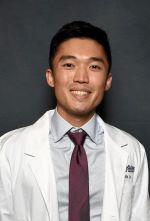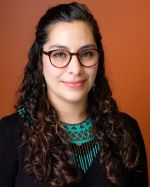May 9, 2024
Introducing the 2024-2025 Magnuson Scholars
On behalf of the University of Washington, the Board of Health Sciences Deans, and the Magnuson Scholar Program, we are pleased to announce the 2024–2025 Magnuson Scholars.
The Magnuson Scholar Program is a key component of the Warren G. Magnuson Institute for Biomedical Research and Health Professions Training. The program is funded by a 1991 endowment established in the late Senator’s name. The annual income allows the University of Washington to distribute an award to one scholar from each of the six health sciences schools – Dentistry, Medicine, Nursing, Pharmacy, Public Health and Social Work – annually. As was the case in recent years, the endowment allowed a seventh scholar to receive a scholarship.
Each Health Sciences School nominates their specific scholar on the basis of outstanding academic performance and potential contributions to research in the health sciences. All Magnuson Scholars help continue the legacy of the late Senator Warren G. Magnuson and his remarkable commitment to improving the nation’s health through biomedical research, education, and responsive, sustainable healthcare discoveries. Per the endowment, at least one scholar must be engaged in research related to diabetes, it’s antecedents or treatment.
Please join us in recognizing the 2024-2025 Magnuson Scholars’ exceptional achievements while also celebrating Warren G. Magnuson’s extraordinary public service career.
The 2024-2025 Magnuson Scholars are:
| Claire Mills School of Dentistry |
Justin Lo School of Medicine |
Elizabeth Frazier School of Nursing |
| Yue (Winnie) Wen School of Pharmacy |
Amanda Brumwell School of Public Health |
Miriana Duran School of Public Health |
| Hannah Scheuer School of Social Work |
Scholar Profiles

Claire Mills, School of Dentistry
Claire Mills is a dual DDS/PhD student at UW. During her dental training, she learned extensively about the challenges in both screening and treating head and neck cancer (HNSCC). This prompted her to pursue a mechanistic study of HNSCC during her PhD.
As a current PhD student, Claire also actively practices dentistry. She screens for head and neck pathologies, including cancer. Her clinical experiences underscore an increased risk of (HNSCC) in specific demographics, including patients with diabetes. She discovered that, despite regular screenings, most cases of oral cancer are not detected until tumors are significantly advanced. These challenges highlight the urgent need for more sensitive clinical screening techniques to identify early cancerous changes before they evolve into tumors.
Slobodan Beronja, PhD, highlights, “Claire adapted an approach for rapid gene targeting of human oral epithelium and cancer in the context of orthotopic transplants. She demonstrated competence, determination, and persistence that I have not seen before. I felt privileged she chose my lab for her training.”
To stop tumor formation from occurring, Claire specifically aims to identify genetic markers of pre-cancer changes in healthy tissues. These efforts will help propel her career to becoming an independent investigator and clinician-scientist, empowering her to focus on scientific pursuits in understanding oral disease, contribute to the field of oral cancer research, and build a successful career combining clinical expertise with scientific research.
 Justin Lo, School of Medicine
Justin Lo, School of Medicine
Justin Lo aspires to be an academic physician scientist who conducts data-driven research focused on risk factors for diabetes and diabetes-related diseases. As an undergraduate student, Justin gained an affinity for the interconnected endocrine system, eventually becoming a teaching assistant for an endocrinology course. His undergraduate studies provided background for his research in obesity-related population health at the Institute for Health Metrics and Evaluation (IHME).
This past summer, Justin was an NIDDK Medical Student Researcher working with the Brain, Body, and Appetite Research Collaborative on a cohort analysis investigating the relationships between inflammation in body weight and glucose-regulating areas of the brain, as well as several metabolic diseases, including diabetes. He presented at the Western Medical Research Conference and was awarded the student subspecialty award in endocrinology.
Ellen A. Schur, MD, MS Professor, Medicine states, “Justin’s capacity to interpret results, compose a manuscript, and communicate findings is beyond his stage of training. He is at the level of a skilled postdoctoral scholar or above. Justin remains engaged and will continue his research with us by investigating genetic risk factors for hypothalamic gliosis. I believe he will grow into a creative and rigorous physician-investigator.”
In pursuit of a career as a physician scientist, Justin is committed to lifelong learning and professional growth. He recognizes that his analytical skillset will be valuable as medicine heads towards an era of big data. Justin’s hope is to complete a fellowship after residency, applying his skills to emerging data-driven topics such as metabolomics and diabetes. Ultimately, Justin strives for evidence-based approaches that can ameliorate the significant burden of diabetes on individuals and communities.
 Elizabeth Frazier, School of Nursing
Elizabeth Frazier, School of Nursing
Elizabeth Frazier’s commitment to cardiovascular health is deeply rooted in her clinical experiences as a cardiovascular intensive care nurse. Witnessing her family navigate the burdens of living with chronic cardiac arrhythmias, particularly atrial fibrillation (AF), was the impetus for pursing a future career as a nurse scientist. Her dissertation research has the potential to advance current understanding of the links between cardiovascular disease and diabetes.
“Atrial fibrillation,” explains Elizabeth, “is the most common cardiac arrhythmia in the U.S. and is recognized as a growing epidemic. This irregular heart rhythm is often accompanied by distressing symptoms, including palpitations, fatigue, and shortness of breath. My research examines social support and the biological markers, epicardial adipose tissue and adipokines, as potential mechanisms contributing to AF symptoms differences in women and men.”
Cynthia M. Dougherty, ARNP, PhD, FAHA, FAAN Professor explains, “The link between diabetes and AF is well established, but Ms. Frazier’s focus on epicardial adipose tissue and adipokines have relevant potential to add depth to our understanding of the mechanisms connecting diabetes, AF, and sex and gender differences in diabetes and AF outcomes.”
Ms. Frazier has a long-term goal of developing biobehavioral interventions that alleviate the symptom burdens of women with cardiac arrhythmias. To achieve her goal, Elizabeth is building a program of study that expands her knowledge in advanced methodologies, statistics, and responsible, ethical research. She feels privileged to be embedded in a team of expert cardiovascular nursing researchers, led by Dr. Dougherty, and to have gained direct research experience working as a Research Assistant with Dr. Megan Streur. Through these experiences, Elizabeth is developing skills to lead her own future interdisciplinary research team and program of research.
 Yue (Winnie) Wen, School of Pharmacy
Yue (Winnie) Wen, School of Pharmacy
Yue (Winnie) Wen graduated with a bachelor’s degree in Pharmaceutical Sciences and joined the Department of Pharmaceutics at UW due to her passion for scientific research. “My thesis projects,” explains Winnie, “center on liver fatty acid binding protein (FABP1) and its role in lipid and drug distribution and metabolism. Given that studies have linked FABP1 polymorphism with type 2 diabetes mellitus, I am keen to improve understanding the role of this variant in metabolic disorders, diabetes and their treatments.” By leveraging experimental, mathematical, and statistical methods, Winnie aims to improve clinical decision-making by translating in vitro and in vivo research findings into practical clinical applications.
Her involvement in diabetes and health science research has not only refined her expertise. It also deepened her commitment to the field of drug development. During a summer internship she observed the intricacies of the drug development pipeline, realizing how her contributions could translate into the clinical real-world.
Dr. Nina Isoherranen states, “During Winnie’s rotation in my lab she impressed me with her ability to analyze literature, independently develop and verify PBPK models, gain expertise in Matlab, integrate parent-metabolite kinetic models with enzyme kinetic information, and finally apply all of this into a pregnancy PBPK model that incorporates changes in kidney clearance during pregnancy. The model she developed can predict drug disposition in treatment of gestational diabetes and expand to diabetic kidney disease.” It is Winnie’s hope that by customizing therapies to individuals, she will pioneer personalized medicine in health care, reducing patient discomfort and enhancing clinical outcomes.
“I am driven to make an impact on individuals affected by prevalent conditions such as diabetes,” states Winnie. “Through my coursework in drug metabolism, pharmacokinetics, biostatistics, and applied mathematics I aspire to contribute to a future where such diseases are effectively managed and no longer pose threats to the patients.”
 Amanda Brumwell, School of Public Health
Amanda Brumwell, School of Public Health
Amanda Brumwell’s goal as a research scientist is to help address the significant disparities witnessed first-hand in the management of diabetes. She plans to devote her dissertation research to advancing the field of diabetes care by investigating health systems and community-level approaches to managing and preventing type-II diabetes.
“I believe,” explains Amanda, “that this kind of research may help to prepare health systems to manage the burgeoning epidemic of diabetes effectively, efficiently, and equitably. It’s exciting to think that low- and middle-income settings could serve as exemplars of success.”
Her work as Managing Director at the nonprofit Advance Access & Delivery, allowed her to oversee two projects, in Durban, South Africa and Chennai, India. Both projects integrated diabetes and hypertension screening and linked to care with local tuberculosis control programs.
Amanda discovered a deep disparity between an alarming burden of diabetes and the lack of financial, structural, and political resources made available for this disease. She believes that, given the huge advances in clinical management of diabetes during recent years, there is significant opportunity for low- and middle-income settings to translate these practices to a real-world setting. Paving the way for novel strategies of treatment and preventing diabetes at a community- and population-level show great potential.
Kenneth Sherr PHD, MPH states, “Amanda is a superlative student with a strong background in implementation of health programs that address diabetes in low and middle-income countries. She is well positioned to build on this implementation experience and scientific training to move towards an independent research career that makes an impact on addressing the unmet diabetes burden globally.”
 Miriana Duran, School of Public Health
Miriana Duran, School of Public Health
Prevention of chronic diseases like diabetes and hypertension, by improving childhood nutrition for Latinx communities via policies that promote a healthy lifestyle, is Miriana Duran’s foremost goal. Before moving to the United States, Miriana worked as a physician in Mexico, where diabetes is the second leading cause of death. “I realized,” states Miriana, “I couldn’t address some of the structural barriers or risk factors related to their illness as a physician.”
Having worked on multiple projects addressing disparities in chronic disease care and outcomes within the Latinx community, Miriana worked on a project that adapted an existing in-person program for caregivers of people with dementia (STAR-C) into a virtual program (STAR-VTF) using a cultural adaptation framework to meet the cultural and linguistic needs of Latinx caregivers. She also worked within the Latino community in rural areas in Washington state including one in which she and her team taught community health workers to identify and implement evidence-based interventions for cancer prevention.
Jessica Jones-Smith, PhD, MPH, RD, explains, “Miriana’s experience as a physician in Mexico, working with patients with obesity and diabetes, fuels her research interests and provides a valuable perspective. She is able to work collaboratively as part of a team, and also skilled enough to make great strides in this field independently.”
Her bilingual, bicultural skills help coordinate, adapt and implement culturally appropriate programs on different topics for the Latinx community. For her dissertation she intends to focus on and examine the health impacts of Seattle’s Fresh Bucks Program. Fresh Bucks is an incentive program that provides $40 per month for fruits and vegetables for lower-income Seattle residents.
Miriana draws on her interpersonal skills, life experience, background knowledge of the relevant literature, and familiarity in qualitative research methods to develop her dissertation ideas. Her intellectual ability and drive to become a leader in public health research will enable Miriana’s work to benefit communities that have been historically marginalized.
 Hannah Scheuer, School of Social Work
Hannah Scheuer, School of Social Work
Aiming to disrupt the foster care to prison pipeline, Hannah Scheuer partners with youth, parents, and social workers, intending to interrogate a systems failure that perpetuates inequity, family instability, and poor health outcomes in Washington state. As Hannah explains, “both foster care and youth incarceration are associated with long-term negative outcomes including physical and mental health concerns and lifelong economic instability which inhibits access to quality health care. Young people in foster care or the juvenile legal system experience health problems including untreated diabetes and hypertension, sexual and reproductive conditions, respiratory and dental concerns, substance use disorders, and suicidality, at much higher rates than the general adolescent population.”
Disruption of this pipeline requires an analysis of the various points at which child welfare, juvenile legal, and legal systems intersect. Hannah’s research goal is to offer potential alternatives from the perspectives of parents and young adults who have experienced child welfare involvement and social workers who work within these systems in Washington state.
Hannah’s primary doctoral advisers, Margaret Kuklinski, PhD and Emiko Tajima, PhD believe her dissertation research and career objectives beautifully exemplify the strong potential for immediate impact as it’s a timely response to the current call for system alternatives. It emerges from the perspectives of those with lived expertise, where Hannah is conducting in partnership with a community-based coalition eager to advance evidence-informed policy and systems change.
Hannah’s research and goals will contribute to an impactful dissertation and propel a career that keeps families and communities center stage. By addressing translational research questions using mixed methods, Hannah hopes to achieve her goal of guiding tangible change.